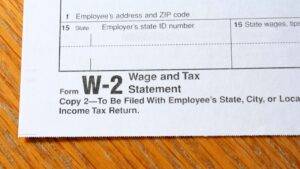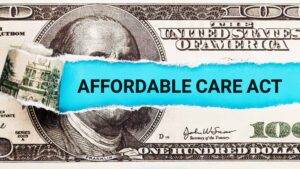
With more than 6 million S Corporation returns filed each year, we'll break down the
6 min read

So, you’ve taken the CPA Exam, and you passed. Congratulations! Your education has only just begun. That’s right. Your qualification as a Certified Public Accountant doesn’t end with the exam. As a CPA, you are now required to earn continuing education credits that can differ depending on the state you are licensed in. That state has specific requirements on how many credits you need per year and the types of CPE courses you need. Whether you’re a newly licensed CPA or an experienced CPA, understanding Continuing Professional Education requirements and choosing what CPE courses to take are crucial for maintaining your credentials and advancing your career. But, what is CPE in accounting? Let’s break down everything you need to know.
This seems pretty basic, right? CPE stands for Continuing Professional Education, but it’s more than that. CPE is the representation of your completed ongoing learning requirements as a tax and accounting professional. It’s mainly thought of as a requirement first and a professional development tool second. That’s the wrong attitude. Your state licensure may need you to stay up to date on changes in the accounting and tax industry, but this is foremost your continuing education, and education is always an opportunity for career growth. That’s why it’s important to choose CPE courses according to your state’s and your personal goals.
CPE courses fall into two main categories, technical and non-technical CPE, and most states require a balance between them.
Technical CPE directly relates to accounting and finance skills. These are the CPE course topics that you would find with Western CPE:
Non-technical CPE supports your broader professional development through CPE courses. These are the CPE course topics that you can expect with Western CPE:
Modern CPE delivery is flexible with much of the industry offering an on-demand approach to education. Self-study online CPE courses work best for busy professionals with irregular schedules. With self-study CPE course, you’re able to learn at your own pace. These CPE courses include self-study video, interactive modules, and downloadable materials.
On-demand webcasts provide interactive learning with real-time question-and-answer opportunities. Webcast CPE courses are for CPAs who would like a more scheduled approach to learning. This format includes live online presentations with chat functionality for immediate clarification of complex topics.
Conference CPE is an exceptional way for CPAs to get most of their CPE course credits. These multi-day events feature breakout sessions, hands-on workshops, and vendor exhibitions. They’re also an exceptional opportunity for conference goers to network and form community in the industry.
Once you’ve taken your CPE course, how do you get CPE credit? You must keep records for at least five years, including certificates of completion from approved providers, CPE course transcripts showing grades and credit hours, conference attendance records with session details, and self-study completion confirmations with exam scores.
Verify that your course providers have proper approval from NASBA or your state board to ensure credits count toward requirements. Meet annual minimum requirements to avoid cramming all credits into one year, which some states prohibit.
Separate your tracking by category, maintaining records of technical versus non-technical hours. Use spreadsheets or specialized tracking software to monitor their progress throughout the reporting period. Being proactive in your CPE tracking keeps you from scrambling last minute for the rest of the CPE reporting period.
What are you looking to gain from your CPE? Looking to keep compliant for recertification? Easy. You can get by on earning CPE credits from any NASBA approved provider and meet your state’s annual minimum CPE requirements, all on a low budget.
What if you’re looking to turn your accounting CPE courses into an opportunity for career development? The best providers offer comprehensive CPE course catalogs covering both technical and non-technical CPE topics. Find the provider with the CPE courses that further your career development goals. Do you want to explore the idea of adding financial planning services to your practice? That’s where the right CPE catalog comes in. You can learn about personal financial planning, financial forecasting, and more all with financial planning CPE courses.
CPE providers often offer bundled packages or CPE subscription models that lock you into a years-long service or longer. At Western, we’re offering an alternative to the subscription model with credit packages:
The quality of your Continuing Professional Education in accounting counts towards your career success and gives you the chance to become more competitive in a tough market. Committing to the accounting profession means that you’re a life-long learner at heart. Each investment in the right accounting CPE courses for you is an investment in the future of your practice.
Ready to advance your accounting career with continuing education courses? Explore our comprehensive CPE course catalogue, check out America’s #1 Federal Tax Update CPE course, or—if you’re looking to add a little bit of fun to you CPE—consider in-person learning at one of our acclaimed CPE conferences.






Subscribe to our news, analysis, and updates to receive 10% off your first purchase of an on-demand digital CPE course.